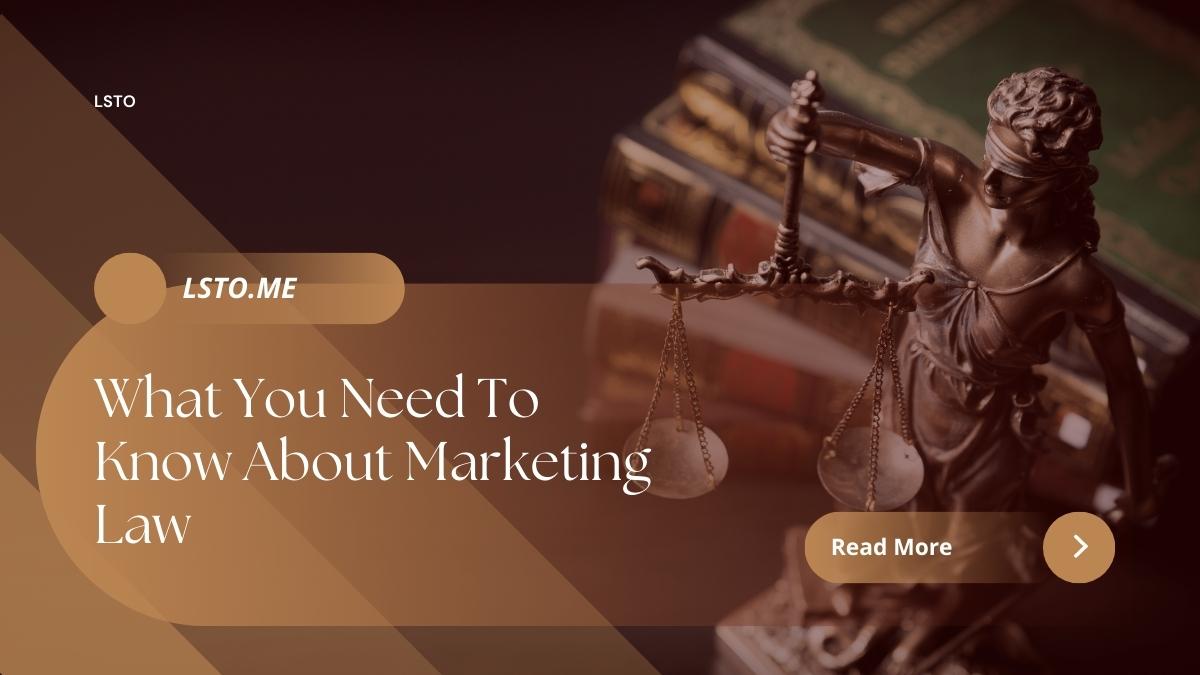
Marketing law is the area of law that regulates the marketing and advertising of products and services. It encompasses a wide range of legal topics, including consumer protection, false advertising, trademarks, and competition law.
Marketing law is designed to protect consumers from unfair or deceptive marketing practices. It also promotes fair competition by preventing businesses from engaging in anti-competitive behavior. Marketing law is constantly evolving to keep up with the ever-changing landscape of marketing and advertising.
Whether you are a business owner or a marketing professional, it is important to be familiar with the basics of marketing law. Ignorance of the law is no excuse, so make sure you are up-to-date on the latest developments in this ever-changing field.
The Federal Trade Commission (FTC)
The Federal Trade Commission (FTC) is a regulatory agency that is responsible for enforcing marketing laws in the United States. The FTC was established in 1914, and its primary mission is to protect consumers from unfair or deceptive business practices.
The FTC has a wide range of authority when it comes to marketing law. The agency can bring enforcement actions against companies that engage in false or misleading advertising, and it can also issue rules and regulations to prevent such practices. In addition, the FTC can file lawsuits on behalf of consumers who have been harmed by deceptive marketing practices.
The FTC has been particularly active in recent years in the area of digital marketing. The agency has taken action against companies that have engaged in false or misleading advertising on social media platforms, and it has also issued rules and regulations to protect consumers from online scams.
State Laws
Most businesses are required to follow state and federal marketing laws. These laws are designed to protect consumers from unfair or deceptive marketing practices. Violating these laws can result in significant penalties, including fines and prison time.
There are a few key state marketing laws that businesses should be aware of. The first is the Fair Labor Standards Act, which prohibits businesses from making false or misleading claims about their products or services. The second is the Consumer Protection Act, which prohibits businesses from engaging in unfair or deceptive practices. Finally, the Federal Trade Commission Act prohibits businesses from making false or misleading statements about their products or services.
Violating any of these state marketing laws can have serious consequences for businesses. If you are found to be in violation of one of these laws, you could be fined or even imprisoned.
False Advertising
In the United States, the Federal Trade Commission (FTC) is responsible for investigating and stopping false advertising. The FTC defines false advertising as “deceptive or misleading” claims made in an advertisement.
There are two types of false advertising:
- Misleading claims about a product’s benefits, such as “this cream will make you look 10 years younger”
- Comparative claims that cannot be substantiated, such as “our shampoo is the best-selling shampoo in the country.”
False advertising is not only unethical, it’s also illegal. The FTC can take legal action against companies engaged in false advertising, including ordering them to stop the deceptive practices and ordering them to pay fines.
Consumer Protection
As a business owner, you are responsible for ensuring that your marketing practices comply with consumer protection laws. These laws are designed to protect consumers from unfair or deceptive marketing practices.
There are a few key things to keep in mind when it comes to consumer protection law and marketing. First, you must ensure that your marketing is not misleading. This means being clear and upfront about the products or services you are offering, and not making false claims about them.
Second, you need to make sure that your marketing is not unfair. This means avoiding practices that take advantage of consumers, such as bait-and-switch tactics or hidden fees.
Finally, you should always disclose any material information about your products or services that could impact a consumer’s decision to purchase them. This includes things like warranties, return policies, and disclaimers.
Privacy
The right to privacy is a fundamental human right that is recognized in international law. It is the right to be free from interference in one’s personal life, including the right to live without fear of violence or intrusion.
Privacy is essential for human dignity and autonomy. It allows individuals to control their own lives and make choices about how they want to live. Privacy also allows individuals to create and maintain relationships with others, free from interference.
Despite the importance of privacy, it is often not respected by businesses or governments. Marketing companies collect and use our personal data without our consent or knowledge. Government agencies spy on our communications and track our movements without our permission.
We need to take action to protect our privacy rights. We can start by demanding that businesses and governments respect our privacy and stop collecting and using our personal data without our consent.
Conclusion
Marketing law is a complex and ever-changing area of law. As a marketer, it is important to be aware of the legal risks associated with your marketing activities. If you are unsure about whether a particular marketing campaign is legal, you should seek advice from a qualified lawyer.




